The Ph.D. in Orthodontics and Dentofacial Orthopaedics degree is for dental specialists who are trained in the field of orthodontics. The degree requires a doctorate in dental surgery, or its equivalent, and A-level standing in the final year. The program requires syllabi, and students are required to submit a research proposal each year.
The program is highly specialized and combines academic and clinical work. The coursework is composed of four years of courses, which may be completed in a full year. The Ph.D. program requires an active clinical practice and a cumulative log of coursework. Unlike the certificate, however, the Ph.D. program requires a three-year program.
The program is six years long, with courses that last one to three years. The coursework includes a foundation in basic sciences and a foundation in the field. The coursework also focuses on the diagnosis, treatment, and prevention of dental and cranial disorders. The program prepares students for a career as a clinician and academic researchers and consists of a comprehensive log of practical work.
A doctorate degree in Orthodontics & Dentofaffacial Orthopaedics is a three-year program focused on research and clinical experience. The curriculum focuses on developing researchers and fostering clinical practice. There are also a variety of opportunities for part-time study. The Ph.D. course syllabus is divided into six semesters of six months.
Ph.D. in Orthodontics & Dentofacial Orthopaedics Eligibility
Candidates who want to take admission in Ph.D. must have a post-graduate degree in Orthodontics & Dentofacial Orthopaedics and its relevant discipline with at least 55% marks from a recognized university and must have passed the national level entrance examination or university level entrance examination. National level entrance exams like UGC NET / UGC CSIR NET / GATE / SLET or University entrance exams consist of written tests and personal interviews.
The Benefits of a Doctorate in Orthodontics and Dentofacial Orthopaedics
The curriculum for the program is designed to prepare students for contemporary practice and future growth within the field. The curriculum is taught by internationally renowned researchers, practitioners, and educators. The faculty of the program includes practicing dental specialists, researchers, educators, and community leaders. The programs' emphasis on lifelong learning and compassionate practice are the hallmarks of the curriculum. Graduates will take a leadership role in specialty governance, research, and education.
The program consists of two main components: didactics and clinical experience. The Ph.D. in Orthodontics combines a foundation in basic sciences with advanced training in clinical procedures. Students will gain the knowledge and skills necessary for academic research and clinical practice. Additionally, they will be trained in the latest advances in 3D imaging and additive fabrication, digital scanning, and treatment planning.
The doctoral program in Orthodontics and Dentofacial Orthopaedics emphasizes practical experience and a foundation in the basic sciences. The Ph.D. enables a graduate to become a leader in academic research. There is an emphasis on teaching and learning in the clinical setting, and the student must complete a cumulative log of practical work.
The Career opportunities for Ph.D. in Orthodontics and Dentofacial Orthopedics
The Ph.D. in Orthodontics and Dentofacial Orthopedics is a three-year research program that combines didactics, active clinical experience, and research. This degree focuses on the theories and methodologies of orthodontics and dentofacial orthopedics. Graduates with a Ph.D. in this field can pursue various careers in academic research or in an institutional position.
The Ph.D. in Orthodontics and Dentofacial Orthopedics degree program emphasizes research, didactics, and clinical practice. This degree prepares graduates for a career in academic research and is advantageous for those who plan to practice orthodontics. After completion of this degree, students will have the opportunity to teach in research settings and collaborate with academic colleagues.
A Ph.D. in Orthodontics and Dentofacial Orthopedics is a doctorate degree that combines academic and clinical work. Graduates are well-equipped to apply knowledge in research and practice and will have a broad base in the basic sciences. The program requires candidates to complete a cumulative log of clinical and behavior training.
Upon completion of the residency program, students will complete a two-year certificate program. The clinical rotation at the University of Rochester Medical Center will further develop their clinical expertise. They will also conduct research in the area of orthodontics. The curriculum stresses the development of researchers and supports an understanding of the field. After completion of the doctorate program, students can choose a position in private practice, academic institution, or research lab.
The Future Scope of a Ph.D. in Orthodontics and Dentofacial Orthopaedics
The Ph.D. program in Orthodontics and Dentofacial orthopedics is a requirement of many universities. It provides a combination of clinical and academic training for those who want to become leaders in the field of dental research. The curriculum includes a cumulative log of practical work. In addition, the Ph.D. program is accredited by the American Association of Dental Schools.
The Ph.D. program in Orthodontics and Dentofacial orthopedics is a three-year degree course that emphasizes research, didactics, and active clinical experience. The curriculum combines a foundation in the basic sciences with clinical and behavior training. The program is offered on a part-time basis and involves various relevant activities.
After earning an MDS degree, many candidates decide to pursue a career in academics or research. They enroll in a Ph.D. program to study their area of interest further. Some students choose to start their own practice. If you have the capital, you can try your hand at a business or in the teaching profession.
The future scope of a Ph.D. in Orthodontics focuses on the restoration of teeth and facial functions. As a specialist in orthodontics, you will be able to provide excellent care for patients suffering from acquired or congenital defects. Regardless of the field you choose, the field is one with enormous scope and future employment prospects.
Ph.D. Research Programme duration
The Ph.D. in Orthodontics & Dentofacial Orthopaedics course is a minimum of 3 years and a maximum of 5 duration. This depends on the university offering the course.
Fees for research program for Orthodontics & Dentofacial Orthopaedics
The average fee for Ph.D. in Orthodontics & Dentofacial Orthopaedics degree is between INR 50000 and INR 500000.
 5 Years
5 Years
 PhD
PhD
 Research
Research










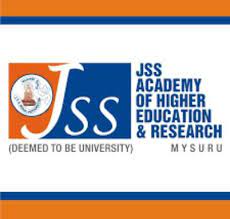
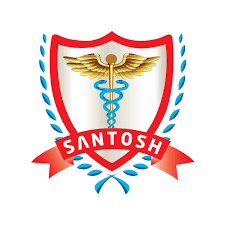
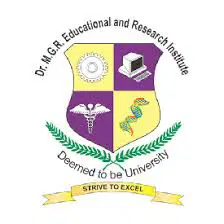
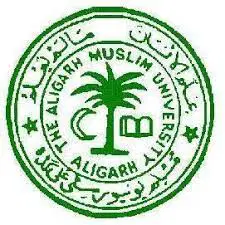
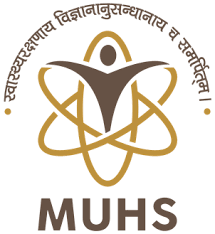


 back
back